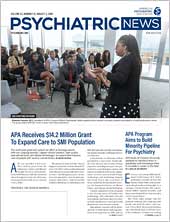Police shootings of unarmed black Americans have adverse effects on the mental health of other black Americans in the general population, according to a study published in the Lancet in June.
Exposure to one or more police killings within a three-month period was associated with a 0.35-day increase in poor mental health days, according to the report, which combined data on police shootings with individual-level data from a nationally representative self-report survey on health. Adverse mental health effects were not observed among white respondents and resulted only from police killings of unarmed black Americans (not unarmed white Americans or armed black Americans).
“The observed adverse mental health spillover effects of police killings of unarmed black Americans could result from heightened perceptions of threat and vulnerability, lack of fairness, lower social status, lower beliefs about one’s own worth, activation of prior traumas, and identification with the deceased,” Jacob Bor, Sc.D., of Boston University School of Public Health and colleagues wrote.
The report was released just two days after a police officer shot and killed Antwon Rose, an unarmed black teen who was fleeing a traffic stop in Pittsburgh.
Bor and colleagues used self-reported race to identify black American respondents to the U.S. Behavioral Risk Factor Surveillance System (BRFSS), a nationally representative telephone survey that collects health data from U.S. adults. Information collected from the 2013-2015 BRFSS was combined with available data on the timing of police killings as reported in the Mapping Police Violence database. This database has tracked police killings in the United States since 2013.
The primary exposure was the number of police killings of unarmed black Americans occurring in the three months prior to the BRFSS interview within the same state. The primary outcome was the number of days in the previous month in which respondents to the survey reported that their mental health was “not good.”
A total of 38,993 of the 103,710 black American respondents (49 percent) were exposed to one or more police killings of unarmed black Americans in their state of residence in the months prior to the survey. Each additional police killing of an unarmed black American in the respondent’s state of residence in the months prior to interview was associated with a 0.14-day increase in the number of poor mental health days.
“Specifically, our estimates imply that police killings of unarmed black Americans could contribute 1.7 additional poor mental health days per person per year, or 55 million excess poor mental health days per year among black American adults in the [United States],” Bor and colleagues wrote. “Interventions are needed to reduce the prevalence of these killings and to support the mental health of communities affected when they do occur.”
Rahn Bailey, M.D., the APA Assembly representative for the Caucus of Black Psychiatrists, told Psychiatric News he believes the study confirms what he and other black psychiatrists have observed anecdotally, both professionally and personally. He is writing a book about the subject of police killings of African Americans.
“So many African Americans have the experience of hearing about these incidents that it inevitably starts to color how one thinks about law enforcement,” Bailey said. “The Lancet study is timely and convincing and has real-world impact.”
Kimberly Gordon, M.D., president of APA’s Caucus of Black Psychiatrists, said she was only a child when a death from police brutality affected her extended family. “A lot of our patients may have this history of trauma related to vicarious exposure to police brutality,” she said.
In an accompanying editorial, Rhea Boyd, M.D., of the Palo Alto Medical Foundation said the findings challenge the notion that health inequities among African Americans are only the delayed products of chronic exposures. Instead, Boyd wrote, Bor and colleagues demonstrate that a single exposure to news about a police killing can have a nearly immediate effect on health.
“Their work to acknowledge and address the clinical impact of police killing black Americans sits within a broader clinical imperative to rigorously define and intervene in the relationship between structural racism and clinical outcomes,” she wrote. “This evidence should ignite inquiry into the broader health impacts of police violence and advance the challenge to confront racial health inequities as products of racism.” ■
“Police Killings and Their Spillover Effects on the Mental Health of Black Americans: A Quasi-Experimental Study” can be accessed
here. The commentary “Police Violence and the Built Harm of Structural Racism” is available
here.

